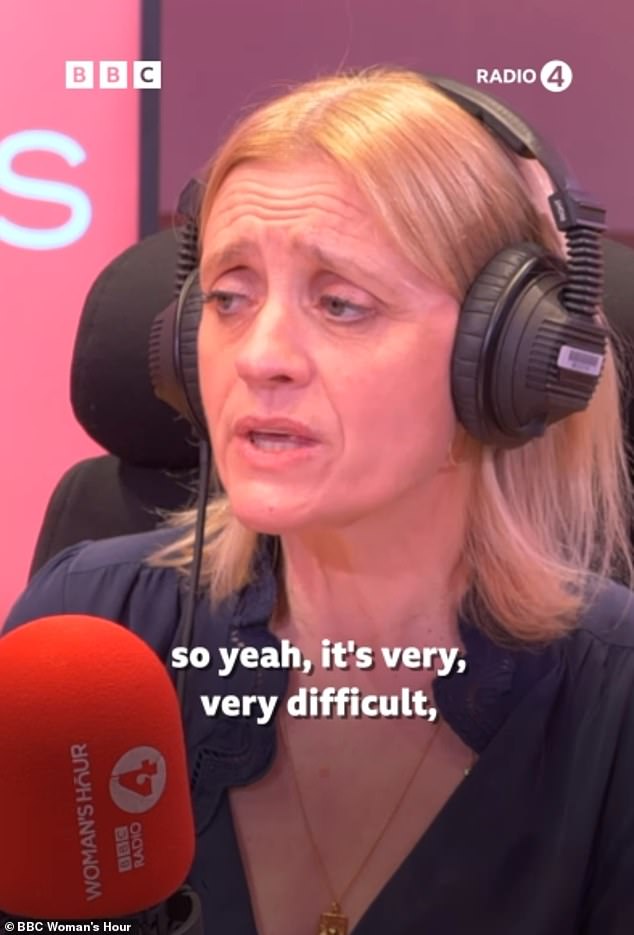Summarize this content to 2000 words in 6 paragraphs Anne-Marie Duff has opened up about her brother Eddie’s shock diagnosis of young-onset dementia. The Shameless star’s sibling, now 56, was diagnosed with the incurable condition nine years ago while in his 40s – although she believes symptoms began as far back as 14 years ago.Anne-Marie told The Sunday Times that she had noticed Eddie struggling to cope – turning up to work late or getting on the wrong bus, and eventually he lost his job as a researcher. She couldn’t figure out why he couldn’t ‘get it together’, and questioned whether it was alcohol, drugs or if he needed psychiatric help. But she never thought it would be that he had young-onset dementia, where people develop the devastating condition before the age of 65.Anne-Marie shared her sadness as she recalled how Eddie struggled to accept or comprehend his incurable diagnosis at the time and spoke as though he would eventually recover. Anne-Marie Duff has opened up to The Sunday Times about her brother Eddie’s shock diagnosis of young-onset dementia The Shameless star’s sibling, now 56, was diagnosed with the incurable condition nine years ago while in his 40s – although she believes symptoms began as far back as 14 years ago’It was sad, because he couldn’t accept it and he couldn’t fully comprehend it, it’s quite aggressive when it’s very early onset,’ Anne-Marie said.Eddie had no job, no partner and no children to care for him when he received the devastating diagnosis nine years ago – so he was moved into state-funded supportive housing.However Anne-Marie said that Eddie’s condition has now progressed and he, now 56, needs hard-to-come-by specialist accommodation with round-the-clock care.The actress said her brother needs to be in secure accommodation because he ‘wanders off’. She has power of attorney over him. But despite his worsening condition, Anne-Marie and her family still find moments of joy and manage to laugh together. ‘You will get precious memories, even though the memories are cobwebs,’ she said. She also shared that it is touching to watch her parents revert back to caring for him as they would have done when he was a child, as she added: ‘Just watching them still parent and shaving him, things like that are so beautiful.’Anne-Marie opened up about Eddie’s condition on BBC Woman’s Hour back in December. Anne-Marie told The Sunday Times that she had noticed Eddie struggling to cope – turning up to work late or getting on the wrong bus, and eventually he lost his job as a researcher But she never thought it would be that he had young-onset dementia, where people develop the devastating condition before the age of 65She told BBC’s Nuala McGovern: ‘We’re at a point now where he’s going to need much more care, so we’re applying for that, so we’re going through that difficult process. And my heart goes out to anyone who’s going through just the admin and the logistics of all of that. ‘I’d say he’s been living with it for about 14 years and he’s only a couple years older than me so that tells you how young he was, and he had his diagnosis about eight or nine years ago. ‘So yeah it’s very, very difficult because you are watching somebody slowly vanish before your eyes.’She continued: ‘But the love doesn’t vanish and I’d say that is one of the gifts of all of it, is that the love is so present in the room. There’s an unspoken version of your relationship that exists in another… it’s almost like a completely other element. It’s so beautiful. Anne-Marie opened up about Eddie’s condition on BBC Woman’s Hour back in December’He doesn’t know who I am but he knows that I love him which is very interesting… but I know the effect that it has on a family.’Going on to praise charitable organisation, Anne-Marie said: ‘I mean the Alzheimer’s Society and all those organisations are phenomenal.’And again I always bang my drum and say if you’re going through anything, if you’re a carer or even someone who’s living with Alzheimer’s, please call them with any questions or worries or even just to talk. They are incredible. ‘We all have someone in our lives, don’t we, who’s living with some version of dementia.’WHAT IS DEMENTIA? Dementia is an umbrella term used to describe a range of neurological disordersA GLOBAL CONCERN Dementia is an umbrella term used to describe a range of progressive neurological disorders (those affecting the brain) which impact memory, thinking and behaviour. There are many types of dementia, of which Alzheimer’s disease is the most common.Some people may have a combination of different types of dementia.Regardless of which type is diagnosed, each person will experience dementia in their own unique way.Dementia is a global concern but it is most often seen in wealthier countries, where people are likely to live into very old age.HOW MANY PEOPLE ARE AFFECTED?The Alzheimer’s Society reports there are more than 900,000 people living with dementia in the UK today. This is projected to rise to 1.6 million by 2040.Alzheimer’s disease is the most common type of dementia, affecting between 50 and 75 per cent of those diagnosed.In the US, it’s estimated there are 5.5 million Alzheimer’s sufferers. A similar percentage rise is expected in the coming years.As a person’s age increases, so does the risk of them developing dementia.Rates of diagnosis are improving but many people with dementia are thought to still be undiagnosed.IS THERE A CURE?Currently there is no cure for dementia.But new drugs can slow down its progression and the earlier it is spotted, the more effective treatments can be.Source: Alzheimer’s Society


